Aging Well
FOR THE YOUNG AT HEART

Avoid CKM Syndrome with These Tips Inside:
Saddleback College Offers Free Lifelong Learning +




Avoid CKM Syndrome with These Tips Inside:
Saddleback College Offers Free Lifelong Learning +


Picket Fence Media is returning with our latest edition of Aging Well — a biannual guide for readers to find exciting new ways to thrive and flourish.
For this spring issue, we spotlight the many local nonprofit organizations, clubs and groups that put on fun events, create gathering spaces and provide volunteer opportunities to help seniors stay active in their communities.
From the San Clemente Village, to the ASAP Community in San Juan Capistrano, there are plenty of activities in South Orange County that cater to a variety of interests and needs.
In the United States, 1 in 3 adults are at risk for a newly recognized syndrome that comes from a combination of heart disease, kidney disease, type-2 diabetes and excess body weight. In this issue, we offer tips on how to avoid what is being called cardio-kidney-metabolic (CKM) syndrome.
We also take a look at Saddleback College in South Or-

ange County, who is offering a creative program for adults wishing to continue learning and expand even after a traditional college education or trade school. With over 30 disciplines to explore, adult lifelong learners can branch out educationally and find new interests.
People ages 65 and older need to keep up to date on vaccinations for flu, COVID-19 and RSV, and we explore why it’s important to set reminders to make appointments for these crucial vaccines in order to help older people risk severe illness and do more of what they enjoy.
This year, San Clemente Village, in partnership with the City of San Clemente, will host its first senior resource fair later this spring, aiming to bring vital information and services to older adults in the community. Organizers expect around 40 vendors representing various industries, including health care, wellness, insurance, fitness, technology and senior living to participate in this two-hour event.
Check out these stories to find out more about Aging Well without going far.
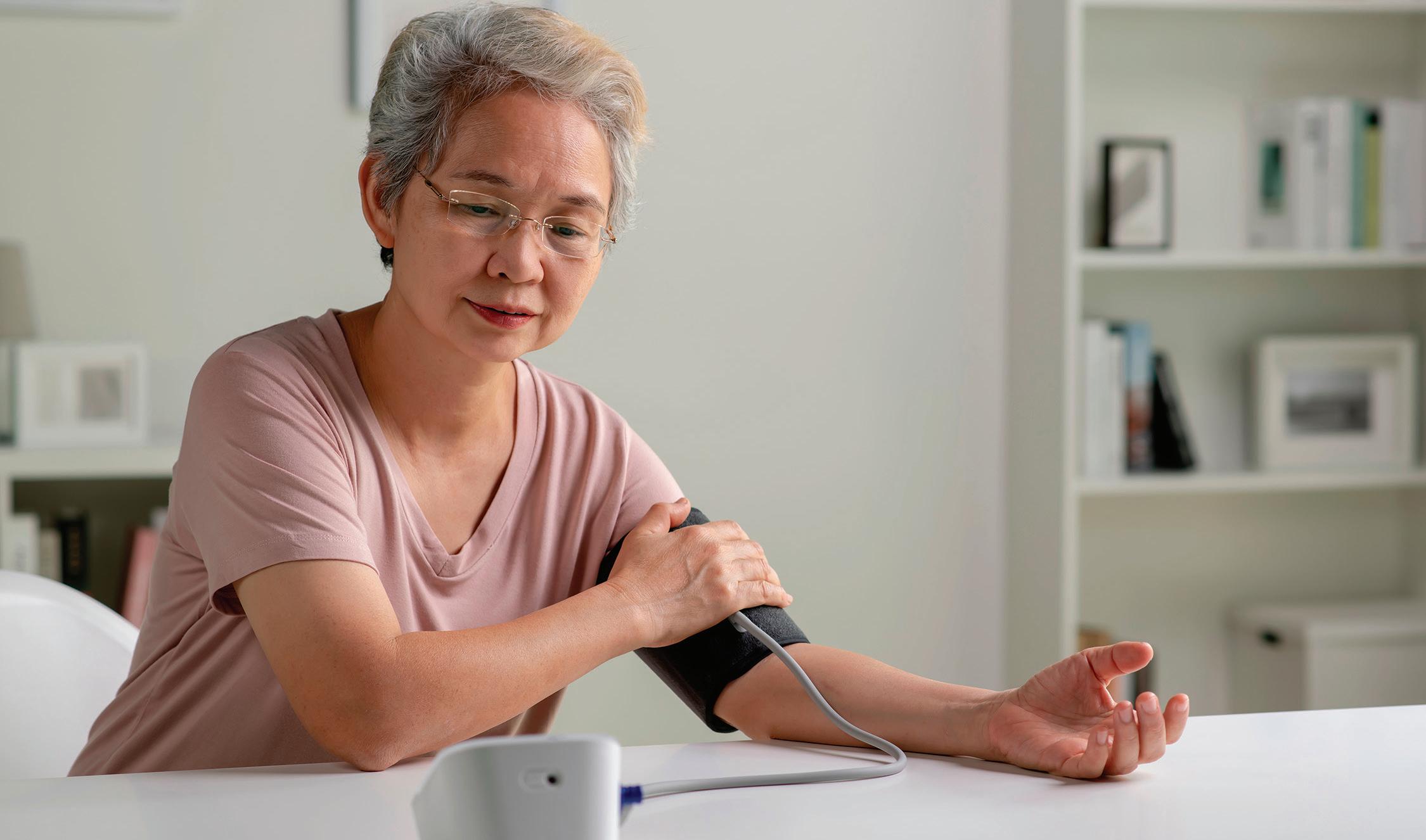
By Family Features
In the United States, 1 in 3 adults is at risk for a newly recognized syndrome that comes from a combination of heart disease, kidney disease, type-2 diabetes and excess body weight. This cluster of conditions, called cardiovascular-kidney-metabolic (CKM) syndrome, is an example of how problems in one part of your body can affect other parts.
To avoid CKM syndrome, health experts suggest paying close attention to four of the American Heart Association’s Life’s Essential 8 — blood pressure, lipids, body weight and blood sugar level — which are core health factors that impact your metabolic health.
Good metabolic health means your body uses energy well and keeps these factors in a normal range. However, when numbers are off in one area, it can affect others, raising your risk for heart disease, stroke, kidney disease and diabetes.
Consider these tips from the American Heart Association to help keep your core health factors under control.
High blood pressure, also known as hypertension, occurs when the force of the blood pushing against the walls of the blood vessels is excessively high. It is a leading cause of heart disease, stroke, and kidney disease.
Since high blood pressure often has no symptoms, the only way to know if you have it is to have your blood pressure checked. Healthy blood pressure is considered to be below 120/80. If your blood pressure is 130/80 or higher, you should discuss monitoring your other core health factors with your doctor.
Lifestyle changes can help reduce high blood pressure. One example is a Dietary Approaches to Stop Hypertension (DASH) eating pattern that’s low in fat and rich in fruits, vegetables, whole grains and low-fat dairy products. Losing 10 pounds and reducing alcohol consumption can also reduce blood pressure.
Cholesterol is a waxy substance that your liver produces and circulates in the blood, where your
body uses it to build cells and create vitamins and hormones. You can also obtain cholesterol from consuming animal products. If there is too much cholesterol circulating, your risk of type 2 diabetes, heart disease, and stroke may increase.
For optimal CKM health, your LDL cholesterol should remain below 100 and triglycerides should be below 150. Triglycerides are the most common type of fat in the body. If your triglyceride level is 135 or higher, consult your doctor about lowering your risk.
Losing body weight and increasing physical activity decrease triglyceride levels. In addition, DASH and Mediterranean (plant-based, high-fiber, low-fat) eating patterns support healthy LDL and triglyceride levels.
Healthy weight may be assessed by body mass index (BMI), a figure that represents your weight in relation to your height. Excess body fat can indicate a higher risk for numerous health issues, including heart disease, stroke, high blood pressure, high cholesterol and diabetes.
CKM syndrome starts when BMI is 25 or higher and waist circumference is 88 centimeters or higher for women and 102 centimeters or higher for men. Aim for a BMI between 18.5-25.
To lose weight and keep it off, start by setting realistic goals. Understand how much and why you eat, manage portion sizes, make smart snack substitutions and be physically active.
High blood sugar can slowly damage the kidneys. In fact, diabetes is the leading cause of kidney disease, and it increases the risk of heart attack and stroke.
Blood sugar is measured in two ways: a fasting blood glucose test (short-term blood sugar) and an A1C test (long-term blood sugar control). A normal fasting blood glucose level is 70-99 and a normal A1C level is below 5.7%. Fasting blood glucose above 125 and A1C of 6.5% or higher means you have diabetes.
Habits that help you avoid high blood pressure, weight gain and high cholesterol also keep your blood sugar in check. These are especially important if you have a family history of diabetes. Learn more about CKM syndrome and how to manage your risk at heart.org/CKMhealth.
By Jessica Reiter-Flax Executive Director San Clemente Village
Did you know that over 30% of San Clemente residents are over the age of 55? California is on pace for 25% of the population to be over 55 by 2030, and the trend continues nationally, as baby boomers outpace any other generation.
As we age, maintaining an active, independent lifestyle while remaining at home becomes more important than ever. However, as we age, our mobility and pace of life also change, and it
becomes crucial that we depend on others for support.
San Clemente Village (the Village) was founded with our older residents in mind. We are a nonpro t, membership organization that provides nonmedical services to San Clemente, Dana Point and San Juan Capistrano residents 55 and older. Services such as transportation, grocery shopping, errands, help around the house, pet assistance, socialization and more!
Our mission is to bring together local residents, 55 and older, to help one another enjoy an active, connected and independent lifestyle.
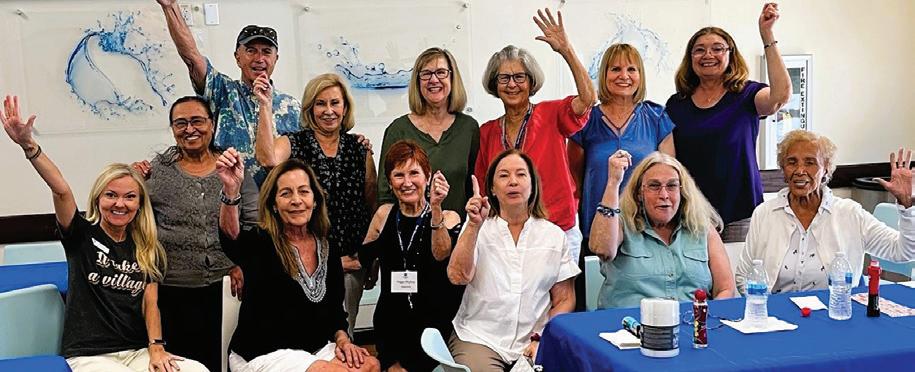

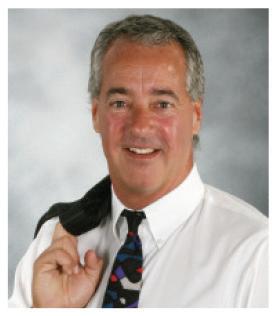
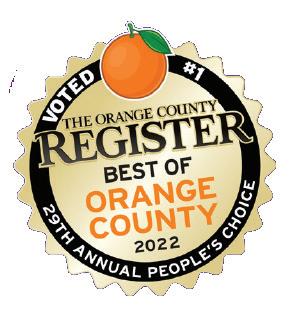

e Village was founded by local residents and city council members in 2014, becoming a 501(c)(3) nonpro t organization in 2015, and began service delivery in 2016. We are a 100% volunteer-driven organization, meaning that all of our services are provided by well-vetted volunteers.
As executive director, I am the only sta . Our average volunteer age is 65, with our average member age at 87. Truly an organization of “Neighbors helping neighbors.”
Our volunteers will provide a record amount of services this year, surpassing 3,100, equating to

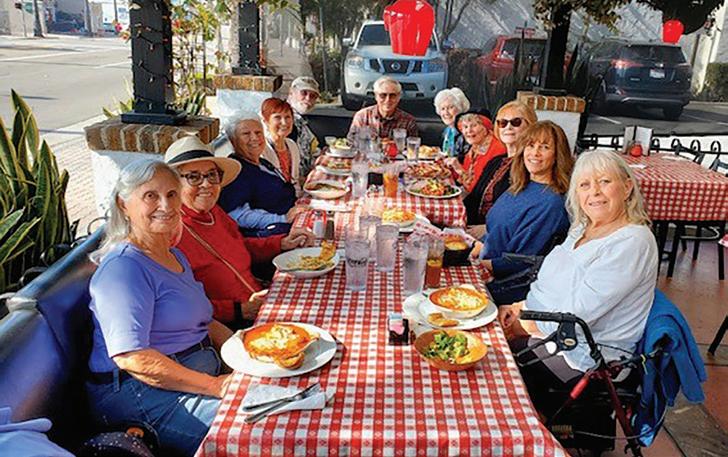
more than 6,000 volunteer hours.
Our No. 1 service requested is transportation, with socialization being a close second. With the surgeon general just declaring loneliness and isolation an epidemic, especially among older adults, the Village aims to provide meaningful social interactions and friendly visits, to help our members thrive mentally and emotionally.
We certainly can’t do this alone; it takes a “village.” We welcome anyone who is interested in joining us to volunteer, become a member or partner with us to continue to serve the older residents of San Clemente, Capo Beach and, eventually, beyond.
To join the movement, please contact: Jessica Reiter-Flax Executive Director 949-441-1348
jessicar@scvillage.org
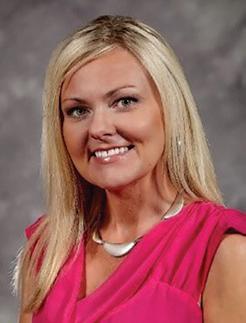



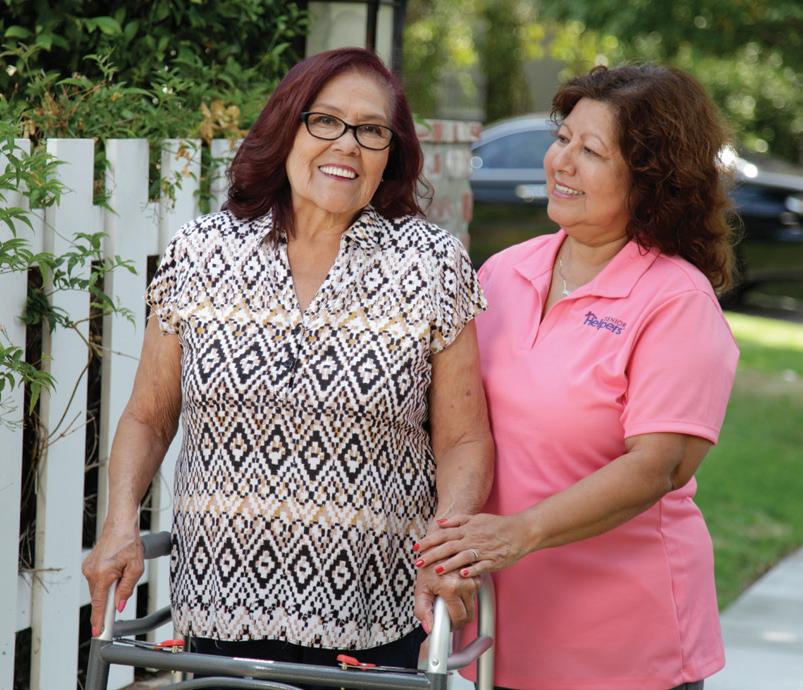

With over 30 discipline to explore, adult lifelong learners can branch out educationally and find new interests. (Saddleback College/Submitted)
By Kaila Mellos
Throughout South Orange County, Saddleback College is offering a creative program for adults wishing to continue learning and expand even after a traditional college education or trade school. Established in 1976, the Emeritus program provides diverse, high-quality, tuition-free classes throughout Orange County and online. With over 30 disciplines to explore, adult lifelong learners can branch out educationally and find new interests.
In Rancho Mission Viejo (RMV), the RanchLife program has partnered with the Emeritus Institute to bring the programs to its residents and nearby communities, promoting lifelong learning for older adults at various Ranch amenities.
“ As we developed the vision for The Ranch and Rancho Mission Viejo — specifically our Gavilan 55-plus brand and the programming for our 55-plus neighborhoods — we placed Saddleback College on our radar,” said Amaya Genaro, community services vice president at Rancho Mission Viejo. “In the early 2000s, I also had several discussions with them about their program, as the community developer, we intentionally built spaces within our clubhouses that could accommodate classes and workshops, just like those offered by the Emeritus Institute.”
The partnership at RMV started in 2023, but there are also class locations in Dana Point, San Clemente, and San Juan Capistrano. With the program, “experts in their field” are bringing their specialized knowledge to older adults, according to RanchLife director Laura Pennington.
“ The Emeritus Institute is a branch of Saddleback College, and what they do is specialize in adult continued learning,” Pennington said. “They do it within an unaccredited format where they are real classes in person or online. There are classes of all different
types, and many of these professors are experts in their field.”
Specifically, in RMV, three classes are offered for the current session, with more in the summer. The programs cover many subjects, including politics, philosophy, physiology, arts, fitness, and more. Since launching their partnership, The Ranch and the Emeritus Institute have continued to expand their offerings. The spring session is from March 24 to May 21, and the summer session will begin from June 2 to July 26.
In the current session, RMV locations are offering portrait painting in oils, watercolor and pastels. Classes on muscle development, posture and fitness for older adults, along with more art classes, will continue in June.
“ I feel like people want to feel like they are learning and growing, and this just gives people an opportunity to learn, grow and develop with their mind, body and spirit by learning these new things. We’ve had everything from the arts to fitness, but we’ve also had classes like Spanish,” Pennington said. “These are excellent wellness classes, and in spirit, they are gathering together in these classes and holding each other accountable; they’re learning together and socializing. With having these classes in our community, there’s a group of students who attend a class at the Canyon House, and either before or after their class is over, they all decide to get coffee together, so they’re building together in spirit as well, making hopefully lifelong connections with other community members.”
“ From our perspective, we’re really excited to see the partnership flourish with the Emeritus Institute,” Genaro continued. “I think programs like this are essential for our 55-plus residents, and it reinforces our pillars of wellbeing at The Ranch. It’s an extension of lifelong learning, social engagement, and mental and physical well-being, which are key to those pillars.”
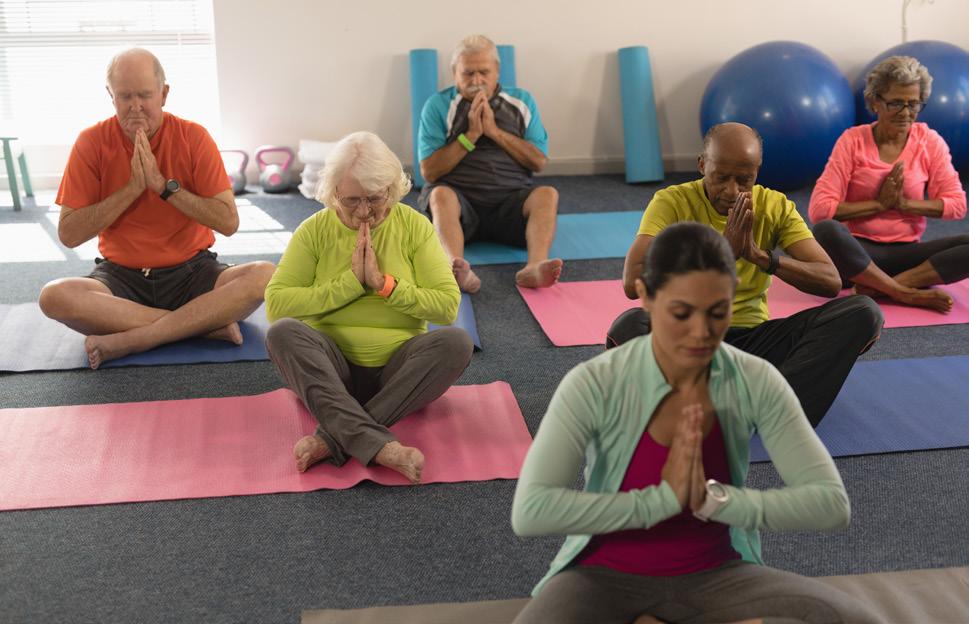
With classes being offered around South Orange County, anyone is welcome to visit RMV to take them; enrollees in the Emeritus Institute through Saddleback can travel to any location.
“ We wanted to be mindful that this was inclusive of not just our immediate community, but the surrounding communities as well,” Pennington said. “It’s essential that we make this accessible to everyone who needs and wants it. One of the coolest things about this is that there’s only a $25 health fee that students pay once a year to enroll in the program, and then they get to take as many online or in-person courses as they want. The program helps meet the needs of those who are on a restrictive budget for taking things like fitness classes or continuing their education. It’s a neat way for us to bring these residents something like this so close to home.”
For more details on the Emeritus Institute and enrollment links, visit saddleback.edu/ learning-saddleback/emeritus-institute.
By

For most women, perimenopause and menopause means more than hot flashes and mood swings. Skin, hair, and nails undergo profound changes, often catching women by surprise. These changes are largely due to estrogen deficiency, which plays a crucial role in skin hydration, collagen production, and hair growth. Understanding how menopause affects your skin and how to adapt your skincare routine can make all the difference.
How Estrogen Deficiency Affects the Skin
Estrogen is vital for maintaining collagen and elastin, the structural proteins that keep skin firm and resilient. By the time a woman reaches menopause, collagen production drops by approximately 30%, leading to increased wrinkles, sagging, and a loss of skin density.
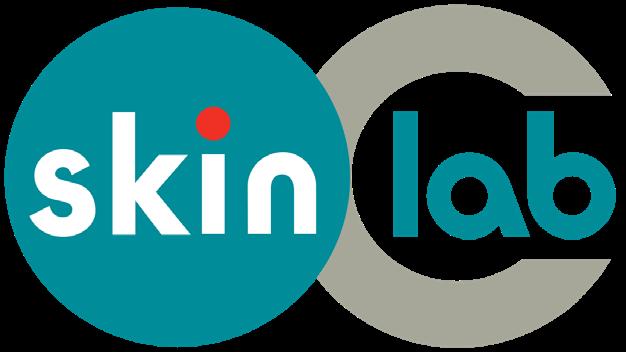
Additionally, estrogen helps skin retain moisture by stimulating hyaluronic acid production. With declining estrogen levels, many women experience dryness, irritation, and increased sensitivity. This often manifests as crepey skin, especially around the eyes, neck, and hands.
Another common concern is thinning skin, impaired skin barrier and slower wound healing. Estrogen deficiency reduces blood flow to the skin, limiting the delivery of oxygen and nutrients necessary for repair. This means minor cuts or bruises may take longer to heal, and the skin may appear dull or fragile.
Menopausal
Many women are surprised to experience breakouts during menopause. While estrogen levels decline, androgen (male hormone) levels remain relatively stable, sometimes leading to hormonal acne. These breakouts typically occur along the jawline and chin and can be more persistent than teenage acne. Additionally, menopause can make the skin more reactive to products and environmental factors, leading to redness, itching,
or flare-ups of conditions like rosacea and eczema.
The Impact on Hair and Nails
Estrogen helps keep hair thick and healthy. When levels decline, many women notice hair thinning, increased shedding, and a receding hairline. Some may also develop androgenic alopecia (female pattern hair loss), where hair becomes finer and sparser over time.
Nails can also become brittle, ridged, or prone to splitting. Estrogen helps maintain hydration and keratin production, so without it, nails may become weaker.
Skincare for Menopause
Adapting your skincare routine to account for these changes is essential, but don’t be tempted to spend a lot of money. Oftentimes, expensive skincare causes more harm than good. Here are my key recommendations:
• Hydrate Intensely: Use thicker moisturizers with hyaluronic acid, ceramides, and glycerin to restore lost hydration.

• Boost Collagen: Incorporate retinoids, peptides, and vitamin C, if tolerated, to stimulate collagen production.
• Protect with SPF: Sun exposure accelerates collagen loss, so a broad-spectrum SPF 30+ sunscreen is non-negotiable.
• Soothe Sensitivity: Switch to gentle, fragrance-free cleansers and avoid harsh exfoliants.
• Support Hair & Nails: Discuss with your derm what hair loss treatments are appropriate and consider using nightly cuticle oils or petroleum jelly for nail care.
Menopause is a dramatic transition, but with the right approach, your skin, hair, and nails can remain healthy and vibrant.

By Family Features
People ages 65 and older need to keep up to date on vaccinations for flu, COVID-19 and RSV. These respiratory infections can become more dangerous as people age. Vaccines can help older people risk less severe illness and do more of what they enjoy.
Those who provide care for older adults can support their health by helping them get vaccinated, too. That’s especially important because older people have a higher risk of getting very sick or even dying from flu, COVID-19 and RSV. Vaccines help protect older adults from serious illness.
As people get older, their ability to fight off infection decreases, putting them at higher risk for complications if they get a respiratory infection. They are more likely to get severely ill and need medical or hospital care from flu, COVID-19 and RSV. Those living in
long-term care facilities often have health issues that make flu, COVID-19 and RSV serious risks.
The Centers for Disease Control and Prevention (CDC) urges all people ages 6 months and older to get this season’s flu and COVID-19 vaccines.
Those ages 75 and older — or ages 60 and older with certain health issues or who live in a nursing home — should get one dose of an RSV vaccine if they haven’t had it before. It’s safe to get vaccines for flu and COVID-19 (and RSV, for those who are eligible) all at the same time. Any side effects from the vaccines are usually mild and go away on their own in a few days.
Most deaths from flu, COVID-19 and RSV are in people ages 65 and older, and the risk grows with age. However, vaccines cut your risk of being in the hospital for flu or COVID-19 by about half and for RSV by about 70%, according to the CDC.
Those who look after older loved ones can help them avoid severe respiratory illness by helping them get vaccinated. In addition to getting vaccinated, there are other ways to help prevent serious illness. When around others indoors, use fans or open windows for better ventilation. Wearing a mask, using physical distancing and washing your hands often can also help. You can use home tests to check for COVID-19 if you have symptoms.
Visit cdc.gov/RiskLessDoMore to learn more about flu, COVID-19 and RSV vaccines.
Talk with your doctor about which vaccines are right for you or an older adult you care for. Or go to vaccines.gov to get started and find a pharmacy near you.
















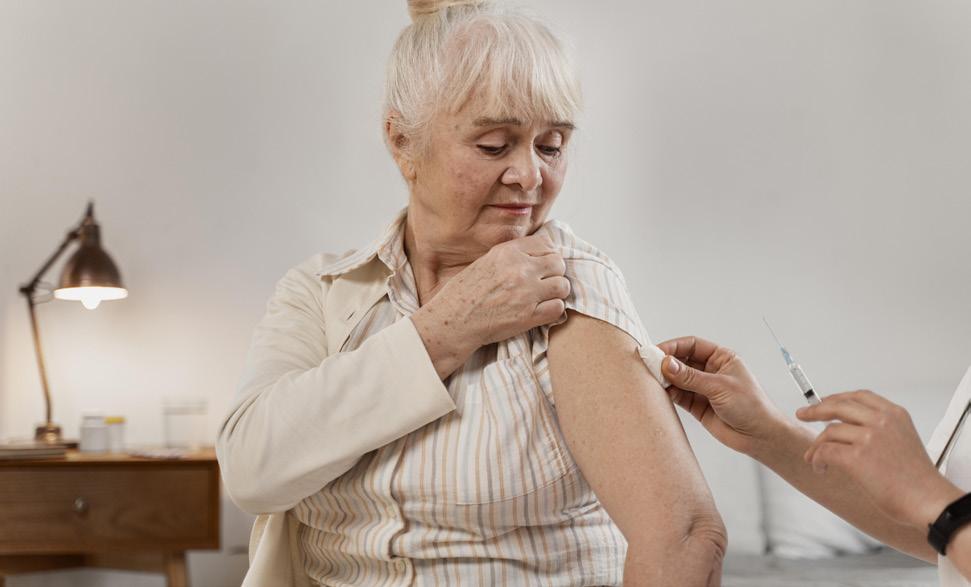
It’s no secret that proper nutrition with a well-balanced diet is essential for improving brain health, energy levels, and overall cognitive function — and certain aromas can even evoke strong emotions and memories. Eating isn’t just necessary to nourish the body with nutrients, but it’s also part of what makes life satisfying.
But what happens when we watch people we love experience memory changes due to Alzheimer’s disease or another form of dementia?
For those with dementia, poor nutrition, reduced appetite, and inconsistent eating patterns are common as they experience cognitive and behavioral changes. This can include skipping meals, forgetting to eat and drink, thinking they’ve eaten already, or having difficulties using eating utensils.
As a result, smart senior housing providers have stepped up to create modern memory care settings where mealtimes translate into powerful moments and positive experiences.
Take Watermark Laguna Niguel, for

example. Building on Watermark Retirement Communities’ 30 years of experience in providing innovative, high-quality memory care, this boutique-style Assisted Living and Memory Care community supports residents with its signature Prema Memory Support℠ program. This unique approach brings together the latest cognitive health science and state-of-the-art wellness programming to help residents engage fully in the rhythms of daily life.
One of the program’s core components is Gourmet Bites Cuisine, a leading innovation designed to empower individuals with cognitive or physical challenges that make it difficult to use utensils to enjoy delicious, nutritious bite-sized culinary creations.
Designed to be eaten by hand, each balanced, nutritious meal enables residents to eat portions that delight the senses, at their own

pace. They can connect with friends and family at the table, rather than being distracted by the struggle of managing silverware. And families don’t have to worry about whether their loved one is eating enough.
Each Gourmet Bites Cuisine meal service also includes calming aromatic rooms with ideal lighting, warm lavender-infused hand towels, and a first course of citrus sorbet to improve the appetite — all orchestrated to indicate that a joyful experience is about to begin.
At Watermark Laguna Niguel, residents and their families report high rates of satisfaction not only for the delicious menu options, but also for transforming mealtimes into more inclusive experiences that ensure accessibility, independence, and self-confidence at the table.
Something special happens when we
come together to share a meal. Memories are made. Stories and laughter fill the air. Cherished family bonds grow stronger. Families and friends connect and indulge in the joys of life. Together.
Watermark Laguna Niguel features refined residences for Assisted Living and Memory Care with signature dining, resort-style amenities, enriching programs, curated wellness offerings, and personalized care. Learn more at WatermarkLagunaNiguel.com or call 949-561-3740.
Watermark Laguna Niguel 27762 Forbes Road, Laguna Niguel 949-561-3740
watermarklagunaniguel.com
Assisted living, memory care
RCFE license No. 306006360

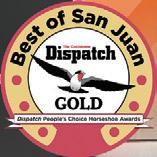

By Angélica Escobar
San Clemente Village, in partnership with the City of San Clemente, will host its first senior resource fair later this spring, aiming to bring vital information and services to older adults in the community.
Titled Active Aging by the Sea, the event will take place on Thursday, May 30, from 11:30 a.m. to 1:30 p.m. at the San Clemente Community Center, with booths and activities set up both inside the building and on the surrounding lawn. The event is free and open to the public.
“We’re partnering with the city to bring more resources to the aging population in San Clemente,” said Jessica Reiter-Flax, executive director of San Clemente Village. “The city has never done a senior-focused resource fair before, and that’s what the Village specializes in, so it’s a good partnership.”
Organizers expect around 40 vendors to participate, representing various industries including health care, wellness, insurance, fitness, technology and senior living. “We’ll have several different vendors there to bring information and resources to our seniors in the community,” Reiter-Flax said. “We’re still accepting vendor applications until May 1, so we don’t have the full list yet, but we’ll definitely have a good variety.”
Among the confirmed participants are Hoag and San Clemente Villas, both sponsors of the event. Hoag will offer on-site health screenings and educational sessions led by three of its physicians. Although the specific doctors have not yet been announced, the sessions aim to provide attendees with relevant, up-to-date health information in a setting tailored to their needs.
Other confirmed vendors include ONSCREEN, a company that specializes in simplifying technology for older adults. The fair will also feature notary services, insurance providers, and local yoga and fitness instructors.
“There should be a good variety of different vendors there,” Reiter-Flax added. “We’re really trying to bring in a wide spectrum of support and services.”
In addition to the informational booths and health resources, the event will also feature complimentary lunches for attendees, generously provided by Pavilions. “We need to give Pavilions a shout-out,” Reiter-Flax said. “They’re providing all of the food, which is really great.”
Reiter-Flax emphasized that this year’s fair is intended to be the first of many. “We’re hoping this is an inaugural event, and we’ll be able to grow it every year with the city,” she said.
San Clemente Village is a nonprofit organization focused on helping older adults live independently and stay connected to their community. By partnering with the City of San Clemente on this new effort, Reiter-Flax said, the organization hopes to ensure local seniors are equipped with the resources they need to thrive.
“It should be a really good community event,” she said. “It’s very much needed with such a high population of retired folks in our community. We thought now is a good time to get together and bring as much information as we can to our retired citizens.”
For more information or to inquire about vendor opportunities before the May 1 deadline, visit scvillage.org.
Gingival Recession
Gingival recession, also known as gum recession, is a condition where the gum tissue pulls away from the teeth, exposing the underlying root surfaces.
Causes:
• Periodontal disease: Periodontal disease: Inflammation of the gums caused by bacteria, which can damage the tissue and lead to recession.
• Aggressive brushing: Brushing too hard, using medium- or hard-bristle toothbrush or with an abrasive toothpaste can damage the gums.
• Flossing incorrectly: Flossing too forcefully or using improper technique can damage the gums.

• Genetics: Some people are more prone to gum recession due to thin or fragile gum tissue.
• Age: Gum recession becomes more common with age.
• Tooth misalignment: Crooked or protruding teeth can put pressure on the gums, causing recession.
• Trauma: Physical injury to the gums can cause them to recede.
Symptoms: Exposed tooth roots, sensitive teeth, bleeding gums, loose teeth, and receding gum line.


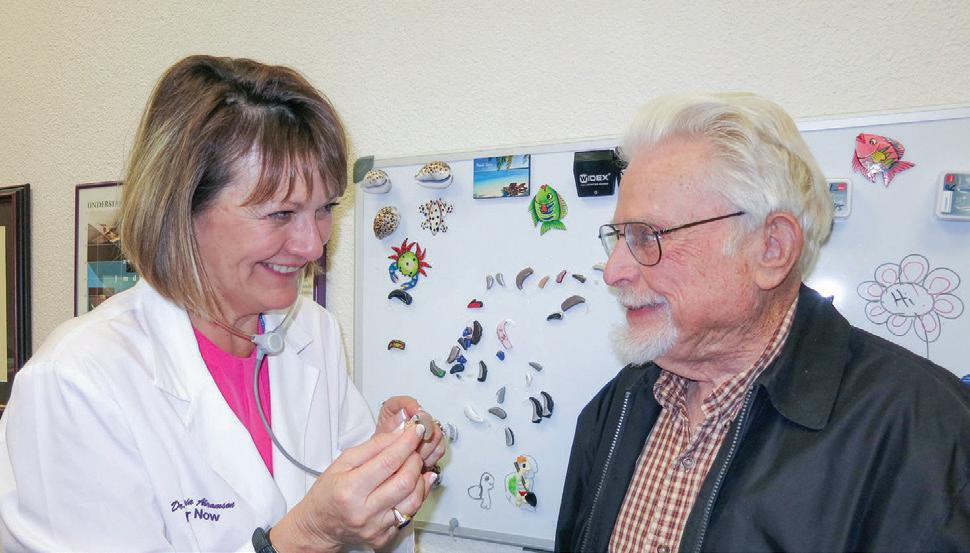
Come

Treatment:
Treatment for gingival recession depends on the underlying cause. Recession will not improve with time or medications. Options include:
• Gum surgery: To repair or regenerate damaged gum tissue.
• Cosmetic procedures: To improve the appearance of the teeth, such as crowns, veneers or bonding.
Prevention:
• Practice good oral hygiene by brushing twice daily with fluoride toothpaste and flossing.
• Avoid aggressive brushing and use a soft-bristled toothbrush.
• See your dentist regularly for checkups and cleanings.
• Correct any tooth misalignments through orthodontics.
• Protect your gums from trauma by wearing a mouth guard during sports or other activities that could cause injury.

If you experience any symptoms of gingival recession, it’s important to see your Periodontist or general dentist promptly. Early diagnosis and treatment can help prevent further damage and preserve your gums health.
Wright Perio & Implants
1001 Avenida Pico, Ste K. San Clemente, CA 92677
949-361-GUMS (4867)












For many older adults in California, their home is their biggest asset and the one they have invested the most money in throughout their lives. By tapping into your home’s equity with a reverse mortgage, you could enjoy greater peace of mind in retirement.
Reverse mortgages are an increasingly popular financial tool designed for older homeowners with a wide variety of uses and benefits. Despite their popularity, myths and outdated misconceptions persist, often keeping people from considering this valuable financial tool. So, let’s explore two of the most common myths and uncover the truth behind them.
MYTH #1: The bank or lender will own my home.
FACT: Actually, just like a traditional mortgage, you or your estate retain ownership of your home’s title while the lender’s interest is limited to the
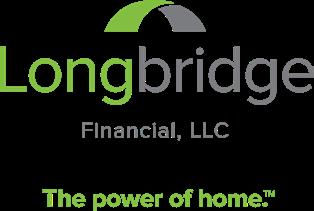
outstanding loan balance as a lien on the property. As with any mortgage, you must keep current with property taxes, insurance, and maintenance.
MYTH #2: My heirs are responsible for repaying the loan.
FACT: Because a reverse mortgage is a “non-recourse” loan, you or your heirs will never owe more than the home is worth at the time of its sale. Even if the loan balance exceeds the value at the time of sale, your heirs won’t have to cover the difference when the loan is repaid.
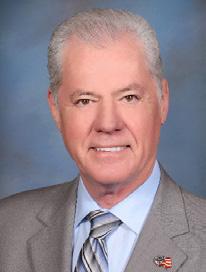
tion, if a reverse mortgage is employed as a strategic part of your financial plan, you can avoid draining other investments, allowing them to grow over time and remain intact for your heirs.
Well, there you have it – 3 common reverse mortgage myths busted! The first step to unlocking greater financial freedom begins with a proactive approach to financial literacy. As the saying goes, “knowledge is power,” and by learning the truth about reverse mortgages, you’re one step closer to the retirement you’ve been dreaming of.
Bill Leber, NMLS# 319723
Reverse Mortgage Consultant Cell: (714) 813-7555 Office: (949) 403-7688
Please call me with any questions bleber@longbridge-financial.com
Branch Office: 336-340 S. Citrus, Covina, CA 91723 (949) 403-7688
NMLS# 2369412
MYTH #3: If I get a reverse mortgage, I’ll have nothing to leave my heirs or estate
FACT: Because you’re borrowing money against the value of your home, and accruing interest and mortgage insurance costs, your loan balance will increase over time. However, it’s possible that the value of your property will grow over your lifetime – so there may be money left over from the sale of the house, once the loan is paid.2 In addi-

I’m your local Reverse Mortgage Consultant with Longbridge Financial. By learning the truth about reverse mortgages, you’re one step closer to the retirement you’ve been dreaming of. Contact me today for a complimentary booklet to review; “Use Your Home to Stay at Home,” was created by the National Council on Aging (NCOA) and is the official reverse mortgage consumer booklet approved by the U.S. Department of Housing & Urban Development (HUD).1
1 “Use Your Home to Stay at Home” by the National Council on Aging (NCOA) is licensed under the CC BY-ND 3.0 DEED (https://www.creativecommons.org/licenses/bynd/3.0/). More information on this booklet can be found at https://www.ncoa.org/ ©2021 National Council on Aging. This material hasn’t been reviewed/approved/issued by any government agency. The company isn’t affiliated with/acting on behalf of/at the direction of any other government agency. ©2025 Longbridge Financial, LLC NMLS# 957935. 61 South Paramus Road, Suite 500, Paramus, NJ 07652. 1-855523-4326. For licensing information, go to: www.nmlsconsumeraccess.org. Additional Longbridge licensing/disclosures: https:// longbridge-financial.com/licensing. Not all products/options available in all states. Terms subject to change without notice. Certain conditions/fees apply. This isn’t a loan commitment. All loans subject to approval. Equal Housing Lender. Licensed by the California Department of Financial Protection and Innovation under the California Residential Mortgage Lending Act; Loans made or arranged pursuant to a California Financing Law license. For California consumers: For information about our privacy practices, please visit https://www.longbridge-financial.com/privacy.
